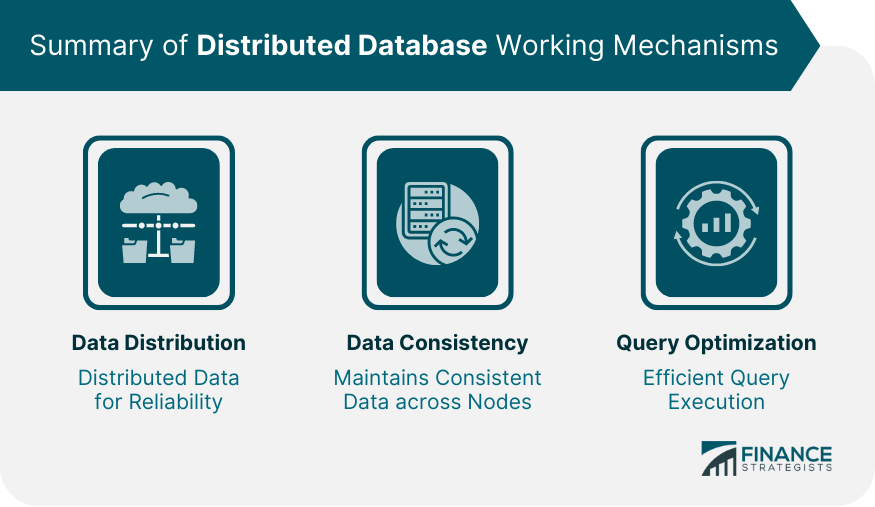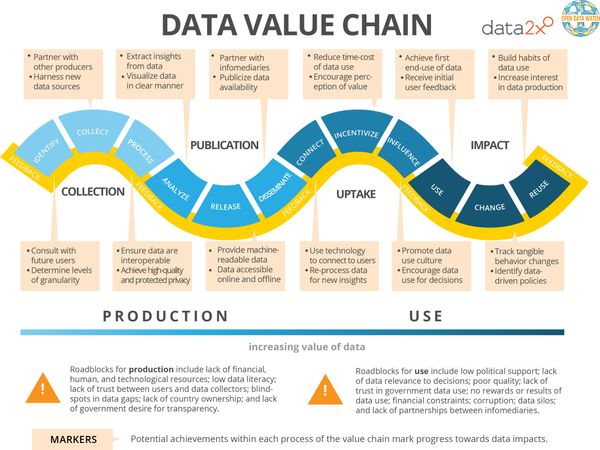Overview
Introduction to data analytics
Data analytics is a powerful tool that enables businesses to unlock the potential hidden within their vast amounts of data. It involves the use of various techniques and tools to extract valuable insights and make informed decisions. In today’s digital age, where data is being generated at an unprecedented rate, businesses need to leverage data analytics to stay competitive and drive business transformation. Introduction to data analytics provides an overview of the field and its importance in the business world. One key aspect of data analytics is database management systems, which play a crucial role in storing, organizing, and retrieving data efficiently. Understanding how database management systems work is essential for effectively utilizing data analytics to its full potential.
Importance of data analytics in business
Data analytics plays a crucial role in the success of businesses today. It enables companies to gain valuable insights from large volumes of data, which can be used to make informed decisions and drive growth. One important aspect of data analytics is its ability to minimize downtime. By analyzing data in real-time, businesses can identify potential issues or bottlenecks before they become major problems, allowing them to take proactive measures and prevent costly downtime. This not only improves operational efficiency but also enhances customer satisfaction. With the help of data analytics, businesses can optimize their processes, reduce downtime, and ensure smooth operations.
Benefits of using data analytics
Data analytics is a powerful tool that can drive business transformation and unlock its full potential. By leveraging data retrieval techniques, businesses can gain valuable insights and make informed decisions. With the ability to analyze large volumes of data, organizations can identify patterns, trends, and correlations that may have otherwise gone unnoticed. This enables them to optimize processes, improve efficiency, and enhance overall performance. Furthermore, data analytics allows businesses to identify new opportunities, mitigate risks, and stay ahead of the competition. By harnessing the power of data analytics, organizations can unlock a wealth of benefits and achieve sustainable growth.
Understanding Data Analytics

Definition of data analytics
Data analytics is the process of examining, cleaning, transforming, and modeling data to discover useful information, draw conclusions, and support decision-making. It involves the use of various statistical techniques, algorithms, and tools to analyze large volumes of data and uncover patterns, trends, and insights. By leveraging data analytics, businesses can gain valuable insights into customer behavior, market trends, and operational performance, enabling them to make data-driven decisions and drive business transformation. Data analytics plays a crucial role in helping organizations unlock the potential of their data and harness it for strategic advantage.
Types of data analytics
Data analytics is a powerful tool that can drive business transformation. There are several types of data analytics that organizations can leverage to gain insights and make informed decisions. The first type is descriptive analytics, which involves analyzing historical data to understand what has happened in the past. This can help identify trends and patterns that can inform future strategies. The second type is diagnostic analytics, which focuses on understanding why certain events or trends occurred. By examining the root causes of past outcomes, organizations can uncover insights that can drive improvement. The third type is predictive analytics, which uses historical data and statistical models to forecast future outcomes. This can help organizations anticipate trends and make proactive decisions. The final type is prescriptive analytics, which goes a step further by recommending specific actions to optimize outcomes. By combining data analytics with business expertise, organizations can unlock the potential for transformation and drive success.
Data analytics process
The data analytics process is a systematic approach to analyzing and interpreting data to uncover valuable insights and make informed business decisions. It involves several steps, including data collection, data cleaning, data transformation, data analysis, and data visualization. One important aspect of the data analytics process is performance tuning in SQL Server. Performance tuning involves optimizing the performance of SQL Server databases to improve query execution time and overall system performance. By fine-tuning the database design, indexing strategies, and query optimization techniques, businesses can achieve faster and more efficient data retrieval and processing. This can lead to improved decision-making, increased productivity, and better overall business performance.
Data Analytics Tools and Techniques

Popular data analytics tools
Data analytics tools play a crucial role in helping businesses unlock their potential and drive transformation. When it comes to popular data analytics tools, one keyword that stands out is database administrator. A database administrator is responsible for managing and maintaining an organization’s database systems, ensuring they are secure, efficient, and reliable. With the increasing amount of data generated by businesses, the role of a database administrator has become even more important. By using advanced data analytics tools, database administrators can analyze large volumes of data, identify patterns and trends, and make data-driven decisions to optimize business processes and drive growth. In today’s fast-paced and data-driven business environment, having a skilled and knowledgeable database administrator is essential for success.
Machine learning algorithms for data analytics
Machine learning algorithms play a crucial role in data analytics, enabling businesses to uncover valuable insights and make informed decisions. One of the key considerations in data analytics is the choice between on-premise and managed databases. On-premise databases are hosted locally on a company’s own servers, providing full control and customization. Managed databases, on the other hand, are hosted and maintained by a third-party provider, offering convenience and scalability. Both options have their advantages and disadvantages, and the decision depends on factors such as budget, security requirements, and technical expertise. Regardless of the choice, leveraging machine learning algorithms can enhance data analytics capabilities and drive business transformation.
Data visualization techniques
Data visualization techniques play a crucial role in unlocking the potential of data analytics for business transformation. By visually representing complex data sets, organizations can gain valuable insights and make informed decisions. One of the key aspects of data visualization is defining data governance. Data governance ensures that data is accurate, consistent, and secure, enabling organizations to trust and rely on the insights derived from data analytics. With effective data governance in place, businesses can confidently leverage data visualization techniques to drive innovation, improve operational efficiency, and achieve their strategic goals.
Implementing Data Analytics in Business

Identifying business objectives
Identifying business objectives is a crucial step in any successful data analytics project. By clearly defining the goals and objectives of the organization, businesses can align their data analytics efforts to drive meaningful insights and outcomes. One key aspect of identifying business objectives is understanding the role of a database administrator. A database administrator functions as the gatekeeper of an organization’s data, ensuring its security, integrity, and accessibility. They play a vital role in managing and optimizing databases to support the organization’s objectives. By leveraging data analytics, database administrators can uncover valuable insights and trends that can inform strategic decision-making. This enables businesses to unlock the full potential of their data and drive business transformation.
Data collection and preparation
Data collection and preparation is a crucial step in the process of unlocking the potential of data analytics for business transformation. It involves gathering and organizing relevant data from various sources, including databases such as MySQL, and preparing it for analysis. MySQL data analysis plays a significant role in this stage, as it allows businesses to extract valuable insights and make informed decisions based on the collected data. By leveraging the power of MySQL data analysis, businesses can uncover patterns, trends, and correlations that can drive transformative changes and improve overall performance.
Data analysis and interpretation
Data analysis and interpretation play a crucial role in unlocking the potential of businesses. By analyzing large sets of data, businesses can gain valuable insights and make informed decisions. Data analysis involves the process of inspecting, cleaning, transforming, and modeling data to discover useful information. Interpretation, on the other hand, involves making sense of the analyzed data and extracting meaningful patterns and trends. Through effective data analysis and interpretation, businesses can identify opportunities, detect potential risks, optimize processes, and drive business transformation.
Driving Business Transformation with Data Analytics

Improving decision-making processes
Improving decision-making processes is crucial for the success of any business. One way to enhance decision-making is by focusing on data analytics. Data analytics allows businesses to gather, analyze, and interpret large amounts of data to gain valuable insights. By leveraging data analytics, businesses can improve their understanding of customer behavior, market trends, and operational efficiency. In particular, data retrieval efficiency plays a key role in decision-making. Efficient data retrieval ensures that relevant and accurate information is readily available, enabling faster and more informed decision-making. By optimizing data retrieval processes, businesses can streamline their operations and make better decisions.
Identifying new business opportunities
In today’s fast-paced and competitive business landscape, identifying new business opportunities is crucial for organizations looking to stay ahead. With the advent of data analytics, businesses now have access to a wealth of information that can help them uncover untapped markets, customer needs, and trends. By analyzing large volumes of data, businesses can identify patterns and correlations that can lead to innovative product ideas, targeted marketing strategies, and improved operational efficiencies. This enables organizations to make data-driven decisions and seize new opportunities for growth and expansion. By leveraging the power of data analytics, businesses can unlock their full potential and transform their operations, ultimately driving success in the dynamic and ever-changing business environment.
Enhancing operational efficiency
Enhancing operational efficiency is crucial for businesses seeking to stay competitive in today’s fast-paced and data-driven world. One key aspect of achieving operational efficiency is through efficient database operations. By optimizing the way data is stored, accessed, and processed, businesses can streamline their operations and reduce costs. Efficient database operations enable faster query execution, improved data retrieval, and enhanced overall performance. With the increasing volume and complexity of data, organizations need to invest in advanced data analytics tools and technologies to ensure efficient database operations and maximize the value of their data.
Conclusion

Summary of key points
Data analytics is a powerful tool for businesses seeking transformation. By analyzing large sets of data, businesses can gain valuable insights and make informed decisions. This article explores the potential of data analytics in driving business transformation. It highlights key points such as the importance of data-driven decision making, the role of advanced analytics techniques, and the benefits of leveraging data analytics for competitive advantage. With the right tools and strategies, businesses can unlock the full potential of data analytics and drive growth and innovation.
Future trends in data analytics
Data analytics is constantly evolving, and there are several future trends that are shaping the field. One of the key trends is the increasing use of artificial intelligence and machine learning in data analysis. With the advancements in technology, businesses are able to analyze large volumes of data more efficiently and accurately. Another trend is the growing importance of real-time analytics, where businesses can make data-driven decisions in real-time. This enables organizations to respond quickly to changing market conditions and gain a competitive edge. Additionally, there is a growing focus on the ethical use of data, with businesses prioritizing privacy and security. As data analytics continues to advance, it is expected that these trends will play a significant role in transforming businesses and driving innovation.
Importance of continuous learning
Continuous learning is crucial for individuals and organizations to stay relevant in today’s rapidly changing business landscape. With advancements in technology and the emergence of new industries, the skills and knowledge required to succeed are constantly evolving. By embracing a culture of continuous learning, businesses can adapt to market trends, identify new opportunities, and make informed decisions. It allows employees to expand their skill sets, stay up-to-date with industry best practices, and enhance their professional growth. Continuous learning also fosters innovation and creativity, as employees are encouraged to explore new ideas and experiment with different approaches. In a competitive business environment, continuous learning becomes a strategic advantage that enables organizations to thrive and drive business transformation.
In conclusion, OptimizDBA Database Optimization Consulting is the trusted industry leader in remote DBA services. With over 500 clients and a track record of delivering transaction speeds that are at least twice as fast as before, we guarantee a significant increase in performance. Our average speeds are often 100 times, 1000 times, or even higher! If you’re looking to optimize your database and experience unparalleled performance, contact OptimizDBA today.







